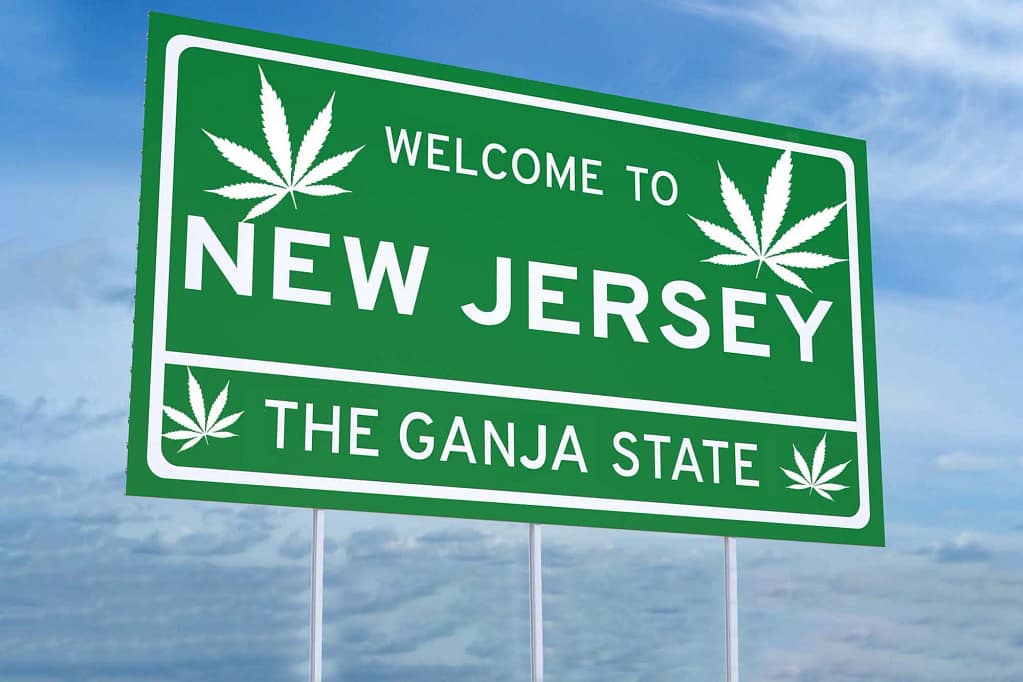In a groundbreaking move, Governor Murphy signed the New Jersey Cannabis Regulatory, Enforcement Assistance, and Marketplace Modernization Act into law, known as A-1897 (P.L. 2021, c. 19). These changes have not only transformed but also how cannabis is treated in the state. Now, adults who are 21 years and older can legally use and possess cannabis. This means you can enjoy marijuana responsibly, just like alcohol, if you're of legal age. Moreover, this law also made it so that if you have a small amount of marijuana or hashish, you won't face criminal charges. It's a big shift from how things used to be in New Jersey marijuana laws, and we're here to explore that journey.
Table of Contents
- 1 Early Days of New Jersey Marijuana Laws
- 2 The Dawn of Prohibition
- 3 The Demonization of Marijuana
- 4 Changing Tides: Decriminalization and Medical Marijuana
- 5 A Shift in Perspective
- 6 The Emergence of Medical Marijuana
- 7 The Road to Legalization
- 8 New Jersey's Legalization Framework
- 9 The Economic and Social Impact
- 10 Public Opinion and Challenges
- 11 Comparisons with Other States
- 12 Future Trends and Legislative Developments
- 13 Conclusion
- 14 Frequently Asked Questions (FAQs)
- 15 What is the current legal status of marijuana in New Jersey?
- 16 Can I grow my own marijuana plants in New Jersey?
- 17 What are the penalties for driving under the influence of marijuana in New Jersey?
- 18 How do I obtain medical marijuana in New Jersey?
- 19 Are there restrictions on where I can smoke or consume marijuana in New Jersey?
- 20 How is marijuana taxed in New Jersey?
- 21 Can I be arrested for possessing marijuana if I'm under 21 in New Jersey?
- 22 What efforts are being made to address social equity in the marijuana industry in New Jersey?
- 23 Are there restrictions on the advertising and marketing of marijuana products in New Jersey?
- 24 What should I do if I have a prior marijuana-related conviction in New Jersey?
Early Days of New Jersey Marijuana Laws

The Dawn of Prohibition
The early 20th century was marked by strict prohibition, mirroring the federal stance against cannabis. In 1937, the Marihuana Tax Act effectively criminalized the possession and sale of marijuana nationwide, shaping the trajectory of marijuana laws. The state promptly aligned itself with this federal policy, enacting its own stringent legislation to enforce New Jersey marijuana laws.
The Demonization of Marijuana
During the early prohibition era, New Jersey marijuana laws were characterized by the demonization of cannabis. Public sentiment and government concerns over perceived negative health and societal effects led to severe penalties for marijuana-related offenses. Even the possession of small amounts could result in criminal charges under strict New Jersey marijuana laws.
Also read : The Truth About Oklahoma Marijuana Laws Revealed
Changing Tides: Decriminalization and Medical Marijuana
A Shift in Perspective
The late 1970s witnessed a shift in perspective toward marijuana, eventually influencing the laws. In 1977, the state took the noteworthy step of decriminalizing the possession of small quantities of marijuana. This change redefined the offense as a civil matter rather than a criminal one, alleviating the punitive aspects of New Jersey marijuana laws while addressing the burden on the criminal justice system.
The Emergence of Medical Marijuana
In 2010, the landscape of marijuana underwent significant transformation with the enactment of the Compassionate Use Medical Marijuana Act. This pivotal legislation allowed patients with qualifying medical conditions to legally access medical cannabis, making New Jersey marijuana laws among the early adopters of medical cannabis programs on the East Coast.
The Road to Legalization

With the passage of the 2020 ballot measure, marijuana laws embarked on a journey to establish a regulated and legal market for recreational marijuana. This involved drafting and implementing comprehensive legislation to govern various aspects of the cannabis industry under the umbrella of New Jersey marijuana laws.
New Jersey's Legalization Framework
Under the new regulations, adults aged 21 and older can legally purchase and possess limited quantities of marijuana for personal use, marking a historic shift in Jersey marijuana laws. The legislation also addressed issues related to expungement of past marijuana-related convictions, offering a pathway for individuals with prior convictions to have their records cleared under evolving New Jersey marijuana laws.
The Economic and Social Impact
The legalization of marijuana in New Jersey has had a profound impact on the state's economy. The legal cannabis industry has generated jobs, tax revenue, and entrepreneurial opportunities. Notably, a portion of the tax revenue from marijuana sales is allocated to fund initiatives aimed at addressing social equity and reinvesting in communities disproportionately affected by past drug policies, demonstrating a fundamental shift in New Jersey marijuana laws.
Public Opinion and Challenges
The evolving laws have corresponded with significant shifts in public opinion. The success of the 2020 ballot measure underscored strong support for recreational marijuana legalization under New Jersey marijuana laws. Nevertheless, debates and concerns persist regarding issues such as impaired driving, youth access, and potential increased use, reflecting the complexities of adapting to changing new laws.
Comparisons with Other States
It stands out as a unique but representative example of a broader trend in the United States. Neighboring states like New York and Pennsylvania have also embarked on the path of legalizing recreational marijuana, leading to regional shifts in cannabis policy under the influence of New Jersey marijuana laws.
Future Trends and Legislative Developments
As the landscape of marijuana laws in New Jersey and across the nation continues to evolve, lawmakers may consider adjustments to existing regulations. Key areas of focus for potential changes include social equity, taxation, and addressing challenges related to public health and safety within the context of New Jersey Marijuana Laws
Conclusion
New Jersey's rules about marijuana have changed a lot. Before, it was mostly illegal, but now, if you're 21 or older, you can use and have marijuana legally. This big shift came when Governor Murphy signed the New Jersey Cannabis Law in 2021. This change has made some good things happen, like creating jobs and making money for the state. It also helps people who were treated unfairly in the past. New Jersey's new rules show other places how to handle marijuana, making a big impact on what's allowed and what's not.
Frequently Asked Questions (FAQs)
What is the current legal status of marijuana in New Jersey?
As of 2023, New Jersey marijuana laws allow for the legal use and possession of marijuana for adults aged 21 and older.
Can I grow my own marijuana plants in New Jersey?
Yes, under New Jersey marijuana laws, adults in the state can grow up to six marijuana plants for personal use, as long as they are cultivated in a private and secure location.
What are the penalties for driving under the influence of marijuana in New Jersey?
Driving under the influence of marijuana is illegal under New Jersey marijuana laws and can result in fines, license suspension, and potential criminal charges. Law enforcement employs various methods to detect impairment, including field sobriety tests and blood tests.
How do I obtain medical marijuana in New Jersey?
To access medical marijuana under New Jersey marijuana laws, you must have a qualifying medical condition and register with the New Jersey Medicinal Marijuana Program (NJMMP). After registration, you can visit a licensed dispensary to purchase medical cannabis.
Are there restrictions on where I can smoke or consume marijuana in New Jersey?
Yes, New Jersey marijuana laws restrict where you can use marijuana. Smoking or consuming marijuana in public places or areas where tobacco smoking is prohibited is illegal. Consumption is generally limited to private residences under New Jersey marijuana laws.
How is marijuana taxed in New Jersey?
New Jersey marijuana laws subject marijuana to state and local taxes. The state imposes an excise tax on marijuana sales, and municipalities can levy additional taxes.
Can I be arrested for possessing marijuana if I'm under 21 in New Jersey?
Yes, New Jersey marijuana laws make it illegal for individuals under 21 to possess marijuana, even though recreational use is legal for adults 21 and older.
New Jersey marijuana laws have implemented various social equity provisions to promote diversity and inclusion within the cannabis industry. These provisions aim to create opportunities for individuals from communities disproportionately affected by past marijuana laws.
Are there restrictions on the advertising and marketing of marijuana products in New Jersey?
Yes, strict regulations govern the advertising and marketing of marijuana products under New Jersey marijuana laws. These regulations aim to prevent marketing to minors and the dissemination of misleading claims.
New Jersey marijuana laws offer provisions for the expungement of certain prior marijuana-related convictions. Individuals seeking expungement can consult with legal experts or organizations specializing in expungement to understand eligibility and available options.

Registered Dietitian
Nathalie Mat, a licensed dietitian (RD), brings years of experience to our team. Her insightful reviews empower readers to make informed decisions about their nutritional choices.















+ There are no comments
Add yours